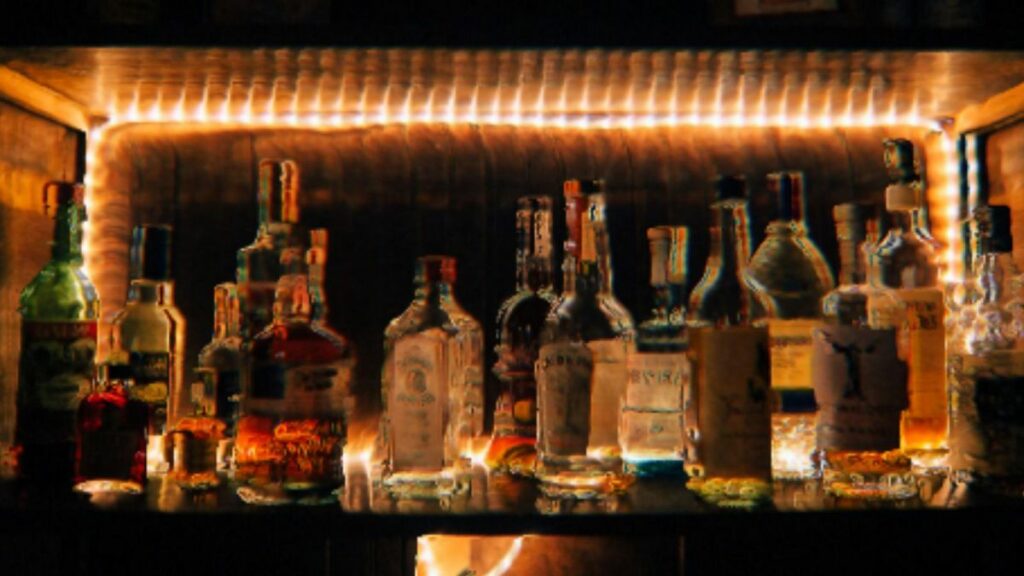Ria Novosti wrote that Russia imported almost €244 million worth of whiskey between January and September 2023, almost four times more than in the same period the year before.
Most of it came from neighbouring Latvia, which Ria Novosti said shipped products worth €177.4 million, followed by Baltic neighbour, Lithuania with €26.9 million.
Latvia’s exports to Russia were worth more than €1.1 billion in 2023, according to data from the country’s government cited by German news agency DW. More than half of all of Latvian exports to Russia were drinks, spirits and vinegar.
The Baltic state exported more wine (€73 million) than even Italy (€68 million), a much bigger producer than Latvia, to Russia last year.
“Latvia has been a vocal supporter of Ukraine and joined in pushing for EU sanctions against Russia following the invasion. At the same time, Latvia continues to serve as Russia’s primary source of whiskey, accounting for more than 70% of all Russian whiskey imports during 2023,” John Wright of the Moral Rating Agency (MRA) – an organisation set up to evaluate whether Western companies carried out their promise to pull out of Russia following the invasion of Ukraine – told Euronews.
“The continuance of Latvia’s export business to Russia is both shameful and contrary to Latvia’s own values. Internally, we at the Moral Rating Agency refer to Latvia’s whiskey trade as ‘Whiskeygate’, both because it is scandalous and because Latvia is serving as a gateway for Western spirits companies into the Russian market.”
Middleman for Western companies
Latvia, according to local experts, is acting as a go-between in a process that involves Western companies unwilling to show they’re still selling their products to Russia amid the deadly war in Ukraine.
Matiss Mirosnikovs, an economist at the Bank of Latvia, told Euronews that while the country has long been a middleman for Western companies, it saw the number of re-exports of Western goods ramp up after Moscow’s 2022 invasion of Ukraine.
“If we look at where these goods are manufactured, what type of alcoholic drinks they are, we mostly see that those are of foreign origin, they’re not produced locally here,” he told Euronews.
“What I think is happening is that Western companies are trying to kind of shift attention away from their role as sellers [to Russia] and blame other distributors, while the names of the larger parent companies don’t show up in these trades, it doesn’t show that they’re directly linked with Russia,” Mirosnikovs suggested.
“We’re not to be blamed,” he added. “We’re on the border and you’ll have some Western exporters who are using this opportunity.” Latvia’s exports are not in violation of sanctions imposed against Russia for the invasion of Ukraine on February 24, 2022.
Davis Vitols, Managing Director of the Latvian Alcohol Industry Association (LANA), agreed.
“Before Russia started the war in Ukraine, Latvia was one of the main hubs, if not the main hub, for many big alcohol companies’ reexports to Russia, Belarus, Ukraine and Kazakhstan,” Vitols told Euronews.
“According to the EU sanctions, alcohol exports to Russia and Belarus are still allowed, except bottles that cost more than €300, so, because Latvia does not produce whisky, these are reexported from other countries, where in Latvia, these bottles are being stamped according to exporting country laws,” he added.
Wright told Euronews that Latvia is “clearly serving as a ‘back door’ into the Russian market for Western spirits companies.” According to Wright, Latvia ranks as the sixth largest importer of Scotch in the world, “even though its population is smaller than that of Idaho,” he said.
“Our calculations suggest that, if the Latvian population actually consumed all of the alcohol that the country is importing, then every Latvian man, woman, and child would be inebriated for the majority of each day. But this is not what is happening. Instead, the data shows that Latvia continues to redistribute about 5 bottles of whiskey to Russia for every 1 bottle of whiskey it consumes at home. “
Russian sources agreed with Latvian experts.
“If previously, according to documents, imports went to Russia simply in transit through Latvia or Lithuania, now the final point is the Baltic States, and from there the delivery goes to the Russian Federation,” Veniamin Grabar, President of Russia’s alcohol company Ladoga, told Ria Novosti.
“The logistics chain has not changed, it has changed a little paperwork. The reason is that often foreign suppliers do not want to take risks and indicate Russia as the final delivery point.”
Mirosnikov told Euronewss the proportion of exports to Russia has actually dropped “dramatically” since 2014.
Ten years ago Russia was Latvia’s second largest export partner, taking 14 per cent of total goods exported, now it’s lower than 6 per cent.
“It’s still quite high, but its role has diminished over the years,” he continued.
‘Vital’ for Western businesses to stop
For Wright, it’s “vital for the Western business community to stand united and to continue to send a clear signal to Russia that its military aggression will result in economic ostracism from the Western world,” he said.
“What kind of message does it send to Russian elites that certain Western countries and companies are willing to bend over backwards to continue providing Western luxury goods to Russia? And what kind of message does it send to the rest of Europe when even the Baltics are supporting Russia? Any country that is tempted to cut corners, either to enrich itself or to curry favour with Putin, should recall President John F. Kennedy’s admonition ‘that, in the past, those who foolishly sought power by riding the back of the tiger ended up inside’.”
Source link : https://www.euronews.com/2024/02/19/latvia-exported-millions-of-euros-worth-of-alcohol-to-russia-in-2023-despite-ukraine-war
Author :
Publish date : 2024-02-19 08:00:00
Copyright for syndicated content belongs to the linked Source.
